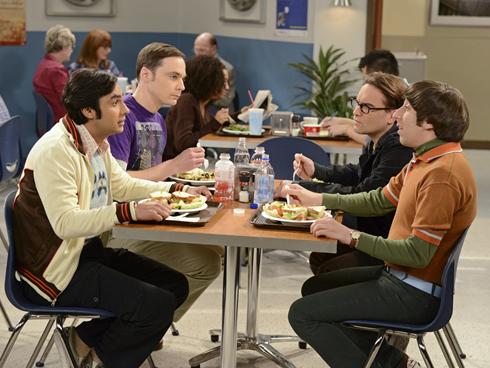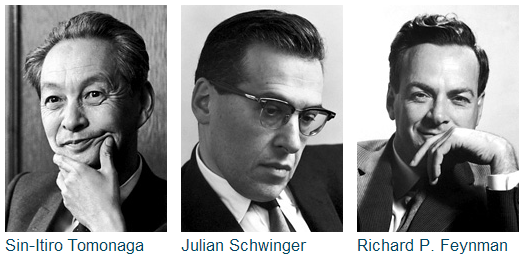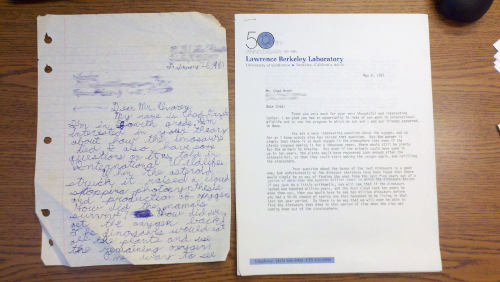Over in Twitter-land, Ben Lillie of the Story Collider asked an interesting question, which sparked some discussion that he’s Storified on a Tumblr blog (just in case the date stamp wasn’t enough to mark this as 2013…). The original question was: Partly I’m wondering if there is a reason to have an event series for… Continue reading Other Scientists and “The Public”
Category: Physics
Help Wanted: Adjunct Physics Faculty
We’ve got calls out to the local grad programs, and I’ve mentioned this on Twitter a couple of times, but it can’t hurt anything to post it here as well: we’ve got a huge overabundance of first-year engineering students that is forcing us to open extra sections of our intro physics classes to accommodate them.… Continue reading Help Wanted: Adjunct Physics Faculty
Direct and Indirect Heating: Why Don’t Power Plants Change Local Climate?
This past weekend, I was at Boskone, where I appeared on a few science-y panels. One of these was on the possibility of beaming power down from space: Energy From Space Beam me down some juice, Scotty? Let’s talk about the possibilities — and practicalities — of really long-distance power transmission. Tom Easton (M), Jordin… Continue reading Direct and Indirect Heating: Why Don’t Power Plants Change Local Climate?
Physics Is For Eternal Five-Year-Olds
Yesterday’s post about differences between intro physics and chemistry sparked an interesting discussion in comments that I didn’t have time to participate in. Sigh. Anyway, a question that came up in there was why we have physicists teach intro physics courses that are primarily designed to serve other departments. It’s a good question, and in… Continue reading Physics Is For Eternal Five-Year-Olds
Physics vs. Chemistry: Nobody Does Research on Newtonian Mechanics
Not long ago, I had a meeting with the Dean, who is a chemist. One of the things I talked about was my plan for distributing teaching assignments in the next few years, which ran into an interesting cultural difference. I explained how I was trying to make the distribution of assignments a little more… Continue reading Physics vs. Chemistry: Nobody Does Research on Newtonian Mechanics
“The Big Bang Theory” and Social Science
I found myself writing about the social skills of scientists today for the book-in-progress (something I’ve done here before), and how they’re portrayed in the media, so of course I had to drop in a reference to “The Big Bang Theory.” Jim Parsons’s portrayal of Sheldon Cooper pretty much nails down one of the extremes… Continue reading “The Big Bang Theory” and Social Science
The Higgs Boson in Context
I ran across this recently while looking for something else, and was reminded of it by this discussion of jargon. It’s an attempt to explain the general historical context of the whole Higgs Boson thing, and why it’s important. I improvised this in response to somebody’s question about how I would explain that, drawing mostly… Continue reading The Higgs Boson in Context
Science Online Advice: Blogging as a Scientist
I ended up feeling that my most valuable contribution to the Science Online meeting (other than boosting the income of the Marriott’s bartenders) was providing experienced commentary and advice from a slightly different angle than a lot of the other participants. A bunch of this got tweeted out by other people in the sessions, but… Continue reading Science Online Advice: Blogging as a Scientist
Physics Is About Rules, Not Facts
While in the library looking for something else, I noticed a book called The Trouble with Science by Robin Dunbar, whose description made it sound very much on point for my current project: In The Trouble with Science, Robin Dunbar asks whether science really is unique to Western culture, even to humankind. He suggests that… Continue reading Physics Is About Rules, Not Facts
Blast From the Past: Letter to and From Luis Alvarez
I have mentioned before that when I was a kid, I wrote a letter to Luis Alvarez, the 1968 Nobel laureate in Physics, asking some questions about his theory that an asteroid impact killed the dinosaurs, which had been featured in a NOVA special. I got a very nice letter back from him, very graciously… Continue reading Blast From the Past: Letter to and From Luis Alvarez


